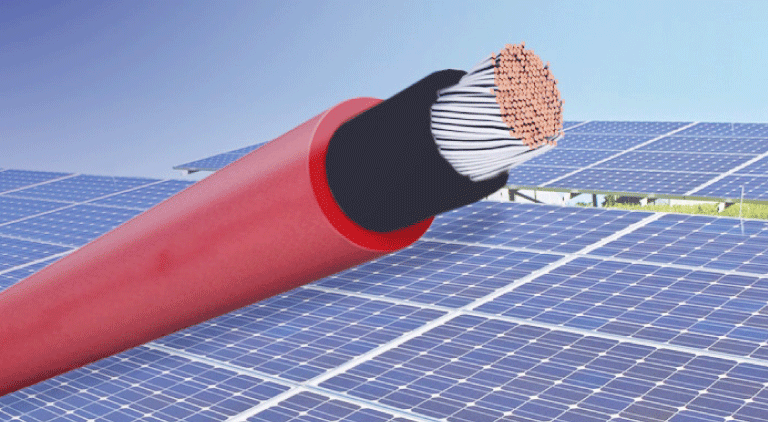Electrical cables play a crucial role in powering homes, industries, and renewable energy systems. The demand for quality wires has increased significantly, making it essential to understand cable price in Pakistan and the factors affecting costs. Additionally, with the rise of solar energy, DC solar wires in Pakistan are gaining popularity for their efficiency and durability.
This guide provides detailed insights into different types of cables, their applications, pricing, and essential buying tips.
Understanding Cable Price in Pakistan
What Determines Cable Price in Pakistan?
The cost of electrical cables depends on several factors, including:
- Material Quality – Copper and aluminum cables vary in price.
- Cable Size and Gauge – Thicker cables cost more due to increased material usage.
- Insulation Type – PVC, XLPE, and rubber-insulated cables have different pricing.
- Voltage Rating – Low, medium, and high-voltage cables differ in price.
- Market Demand – Prices fluctuate based on supply and demand trends.
Types of Electrical Cables in Pakistan
1. Power Cables
Used for transmitting electricity in homes and industrial setups. Available in low, medium, and high-voltage types.
2. Control Cables
Designed for carrying control signals in automation systems and machinery.
3. Flexible Cables
Ideal for applications requiring frequent movement, such as household appliances.
4. Armored Cables
Reinforced with steel or aluminum armor for underground and outdoor installations.
5. Coaxial Cables
Used in telecommunication and cable TV networks.
6. Fiber Optic Cables
High-speed data transmission cables used in modern internet infrastructure.
Current Cable Price in Pakistan
Factors Affecting Cable Price Fluctuations
- Copper Market Rates – Copper-based cables are directly affected by global metal prices.
- Economic Conditions – Inflation and exchange rates impact cable pricing.
- Manufacturing Costs – Labor and production costs contribute to final prices.
- Government Regulations – Import duties and local taxation influence pricing.
Estimated Cable Price in Pakistan (2025)
| Cable Type | Approximate Price Per Meter (PKR) |
|---|---|
| Copper Power Cable (1.5mm) | 100 – 150 |
| Copper Power Cable (4mm) | 200 – 300 |
| Armored Cable (16mm) | 500 – 700 |
| Fiber Optic Cable | 800 – 1,500 |
| Coaxial Cable | 50 – 100 |
| Flexible Cable (3 Core) | 300 – 500 |
Note: Prices may vary based on brand and location.
Introduction to DC Solar Wires in Pakistan
What are DC Solar Wires?
DC solar wires in Pakistan are specialized cables designed for connecting solar panels, inverters, and battery systems. These wires are crucial for efficient energy transmission in solar power setups.
Key Features of DC Solar Wires
- UV & Weather Resistance – Designed to withstand extreme temperatures.
- High Conductivity – Ensures minimal power loss.
- Double Insulation – Provides extra protection against damage.
- Fire-Resistant Material – Reduces risk of electrical fires.
Types of DC Solar Wires in Pakistan
1. Single-Core Solar Cables
Best for direct connections between solar panels and inverters.
2. Twin-Core Solar Cables
Used for interconnecting solar panels and battery systems.
3. TUV Certified Solar Cables
Meet international safety and performance standards.
Factors Affecting DC Solar Wires Price in Pakistan
- Cable Thickness – Thicker wires are more expensive due to higher copper content.
- Insulation Material – High-quality insulation increases cost.
- Brand and Certification – TUV or UL-certified cables cost more but offer better safety.
Estimated DC Solar Wires Price in Pakistan
| Wire Type | Price Per Meter (PKR) |
|---|---|
| Single-Core (4mm) | 200 – 350 |
| Twin-Core (6mm) | 400 – 600 |
| TUV Certified (10mm) | 700 – 1,200 |
How to Choose the Best DC Solar Wires in Pakistan
- Check Voltage Ratings – Ensure compatibility with solar inverters.
- Opt for UV-Resistant Wires – Important for outdoor solar panel setups.
- Look for Fire-Resistant Properties – Increases safety.
- Verify Certification – Ensure compliance with safety standards.
Installation Guide for DC Solar Wires
Step 1: Measure Cable Length
Calculate the distance between solar panels, batteries, and inverters.
Step 2: Select Proper Cable Size
Use thicker cables for long-distance connections to minimize energy loss.
Step 3: Secure Proper Insulation
Ensure cables are weather-resistant and fireproof.
Step 4: Follow Correct Polarity
Connect positive and negative terminals correctly to avoid short circuits.
Maintenance and Safety Tips for Cables and Solar Wires
- Regularly Inspect Cables – Check for damage or wear.
- Avoid Overloading Circuits – Use cables with appropriate amp ratings.
- Protect Cables from Moisture – Use waterproof insulation for outdoor installations.
- Ensure Proper Earthing – Reduces risk of electrical shocks.
FAQs
What is the average cable price in Pakistan?
The price varies depending on cable type, thickness, and material, typically ranging from PKR 50 to 1,500 per meter.
Which cable is best for home wiring?
Copper insulated cables are the best choice due to their high conductivity and durability.
What factors affect DC solar wires in Pakistan?
Copper quality, insulation type, and certification standards impact the pricing.
Are DC solar wires in Pakistan weatherproof?
Yes, high-quality DC solar wires come with UV and moisture-resistant insulation.
How long do DC solar wires last?
With proper installation and maintenance, they can last over 25 years.
What is the difference between AC and DC cables?
AC cables are for alternating current, while DC cables are used for direct current, such as in solar power systems.
Can I use normal electrical wires for solar panels?
No, DC solar wires in Pakistan are specifically designed to handle solar energy transmission efficiently.
Do thicker cables improve power efficiency?
Yes, thicker cables reduce resistance and prevent power loss.
What is the price of armored cable in Pakistan?
It ranges from PKR 500 to 1,500 per meter depending on size and specifications.
How to check cable quality before buying?
Look for certified markings, check conductor material, and ensure proper insulation.
What certifications should DC solar wires have?
TUV, UL, and IEC certifications ensure high safety and performance standards.
Can DC solar wires be used for other electrical connections?
While possible, they are optimized for solar energy applications.
Are solar cables fire-resistant?
Yes, they are designed with fire-retardant materials.
Is copper or aluminum better for solar wiring?
Copper offers better conductivity, making it the preferred choice.
What is the lifespan of electrical cables?
Standard cables last 20-40 years depending on usage conditions.
Conclusion
Understanding cable price in Pakistan and selecting high-quality DC solar wires in Pakistan is essential for efficient energy transmission and long-term reliability. Whether you’re setting up home wiring or a solar power system, choosing the right cables ensures safety and performance.

